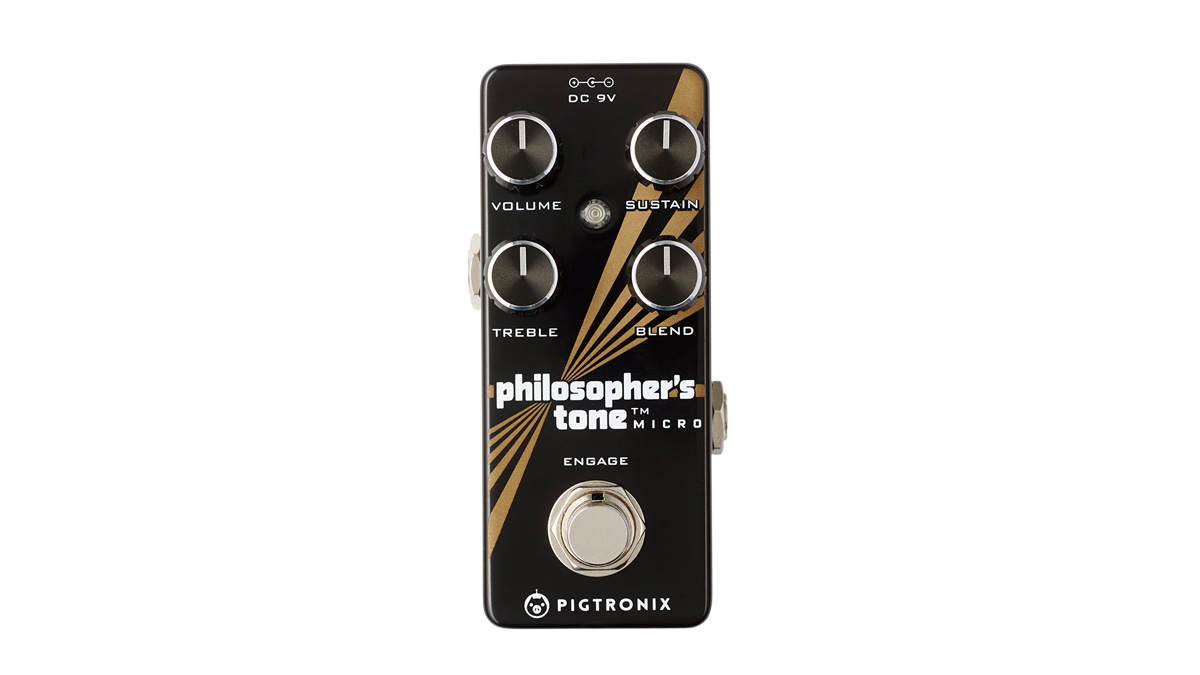MusicRadar Verdict
Easy to slip onto your ’board, this is a great utility pedal for more than just compression.
Pros
- +
A versatile, and impressive, performer.
Cons
- -
Very few.
MusicRadar's got your back
Pigtronix has now managed to condense its Philosopher’s Tone into a micro-sized pedal that should please anyone looking to conserve pedalboard space.
While losing the Grit knob of the original, there’s still a Blend knob, which means you can add in gradual amounts of compression in parallel with your dry signal, right up to a fully compressed signal.
There’s also a Treble control with cut or boost at 2kHz, which is useful if you want an EQ shift with no compression, and really helpful for dialling in an altered tone with compression.
The compression here doesn’t get as full-on squashy as some but is a natural for clean sustain, and there’s loads of headroom via the volume knob to drive your amp harder.
With that combination of boost, compression and extra top-end, this pedal has a role to play beyond just a compressor, notably as a tone conditioner/driver that can elevate your sound for solos.
Want all the hottest music and gear news, reviews, deals, features and more, direct to your inbox? Sign up here.
Trevor Curwen has played guitar for several decades – he's also mimed it on the UK's Top of the Pops. Much of his working life, though, has been spent behind the mixing desk, during which time he has built up a solid collection of the guitars, amps and pedals needed to cover just about any studio session. He writes pedal reviews for Guitarist and has contributed to Total Guitar, MusicRadar and Future Music among others.

